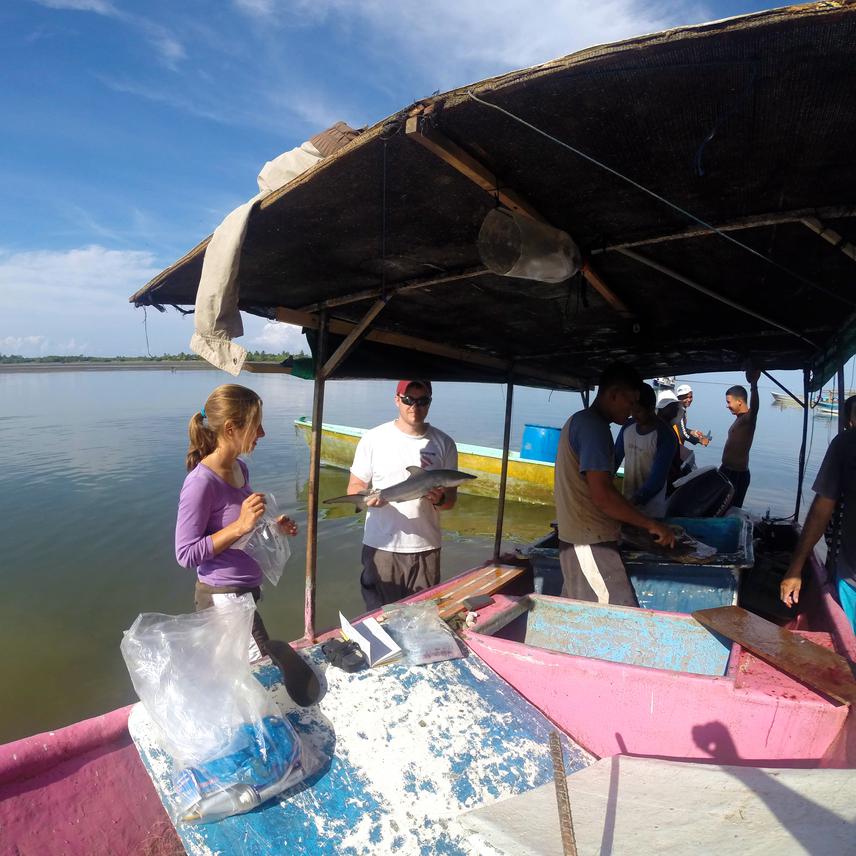Jason Ray O'Bryhim
My research goal is to determine the species-specific impacts fisheries have on shark populations and to work with local communities to develop effective protective legislation.

In the past two decades shark populations have declined as a direct result of global increases in shark fisheries. Approximately 100 million elasmobranchs (sharks and ray) are caught each year due to an increased demand for their products. Some countries are experiencing decreased catch rates as a result of overfishing. For example, in Costa Rica, catch rates for two commercially important and threatened species, Sphyrna lewini and Carcharhinus falciformis, have experienced declines of approximately 90% and 80% respectively. Still, few nations have developed catch limits or restrictions for the directed fishing of sharks in their waters and no international or bilateral catch limits exist. One barrier to establishing catch limits is a lack of accurate species-specific extraction rates. Many species look similar making accurate identification difficult. Additionally, the common practice of removing the distinguishing characteristics (fins and head) of sharks, yields a relatively un-identifiable carcass.
This makes it impossible to monitor fisheries expansion, quantify bycatch mortality, and assess the impact fisheries are having on species. The absence of these data hinders the establishment of management and conservation tools to protect sharks. Also, the perceptions fishermen have about sharks may be impeding progress in shark conservation. Therefore, the objective of this research is to determine the quantities and types of shark species being caught in artisanal fisheries and sold in local markets in Costa Rica, and to determine how the knowledge, perceptions, and behaviours of the fishing communities toward these animals and their fishery impact shark conservation. To accomplish these goals we will be collecting tissue samples in Coyote, Bejuco, Ojochal, and the San Jose central market.
After which we will be using DNA barcoding to amplify and sequence the cytochrome c-oxidase-1 gene for species identification. Structured social surveys will also be distributed to artisanal fishermen working on vessels off Costa Rica’s Pacific coast. These surveys will collect basic demographic information and measure knowledge, perceptions, and behaviour toward sharks and their fishery.